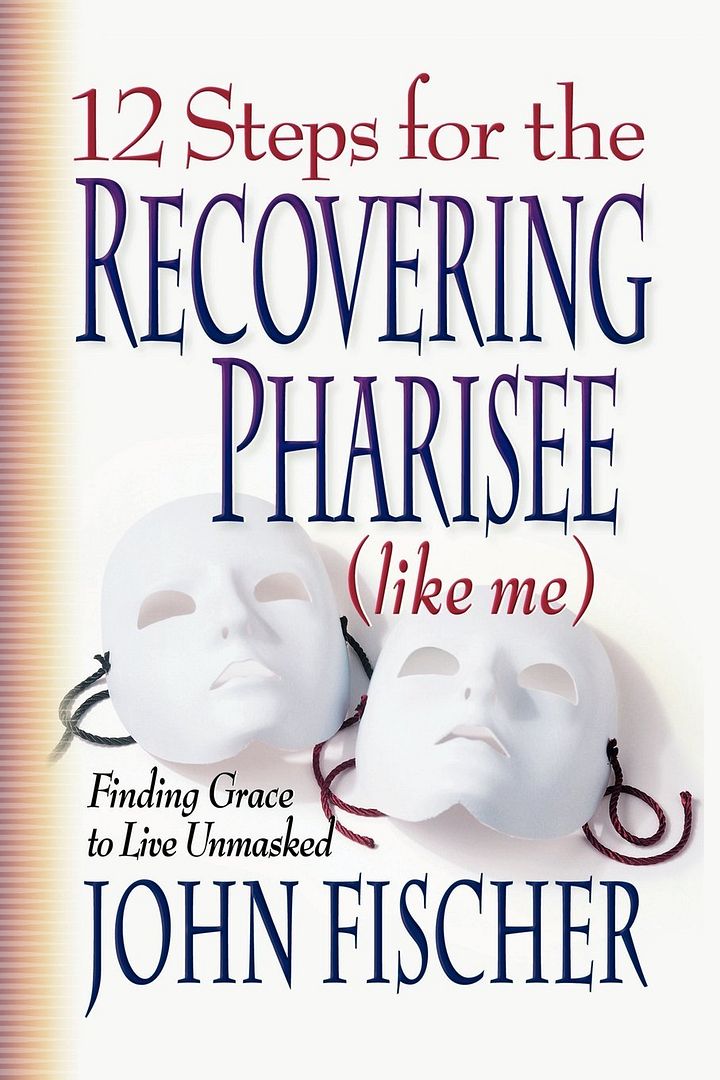Step 2 - "We have come to believe that our means of obtaining greatness is to make everyone lower than ourselves in our own mind."
I agree with the John Irving quote that heads this chapter: "Everyone feels morally superior to someone." I also identify with his experience in the checkout line at the office supply store. and with his saying, "Having identified the same behavior in myself, I could now forgive her more easily and avert the judgment, as well as forgive myself for the judgmental thoughts I had toward her." And, she was "a real live person!"
 John Fischer advises putting ourselves in their position (and I'll say it's often hard to even begin the process of forgiving without having at least a little understanding of the other person's position) and giving them the benefit of the doubt. Oh wow, that's what's gotten me in really big trouble a lot of times! The codependent streak in me gives them far more than a little benefit of any doubt and too often ends up mired in black-and-white thinking about every event and everyone.
John Fischer advises putting ourselves in their position (and I'll say it's often hard to even begin the process of forgiving without having at least a little understanding of the other person's position) and giving them the benefit of the doubt. Oh wow, that's what's gotten me in really big trouble a lot of times! The codependent streak in me gives them far more than a little benefit of any doubt and too often ends up mired in black-and-white thinking about every event and everyone. "Not just any group will do. It need to be a group committed to telling the truth. The Pharisees traveled in a group, but it was not a group that told the truth." AA and "drinking buddies" handling the same problem in a different way. True.
I love his saying, (page 33), " . . . personal pain is the pathway to empathy. It's worth the pain to become more human—to identify with people—to join the human race." That's exactly what I've been hoping – particularly in the week of recent years!
1. Why do we frequently have one scale of mercy for ourselves and another for those around us? Why do we feel we deserve mercy when we judge others harshly?
Although I probably do still judge others more harshly than I just myself, I need to say these past years have been so devastating and shattering – esp in terms of the ways I've constantly been judged – I truly think at this stage I need to have mercy on myself more than I need to have mercy on others.
2. In what ways do you find yourself putting others down in order to elevate yourself? Is your action implicit or explicit? Mental or verbal?
I'm proud of my ability to articulate the Gospel and theology; I'm also proud of a lot of my other abilities. It's something I mainly think about but never would dare mention to anyone else.
3. What kind of accountability could you implement to more quickly recognize and address your inclination to put others below yourself?
Well, in real life, there are few venues or situations in which I do (sad to say) tend to assume a sort of superior attitude, and those are discussing theology with some select people – though at the same time I can be extremely compassionate without being in the least patronizing with other people from similar backgrounds as those "some select."
4. Who serves as a two way mirror in your life? Does this person or persons have the freedom to be honest with you? Do you seek the truth about yourself as they see it?
These days I no longer have anyone who knows me well enough truly to be a mirror for me. Seems as if people either are busy projecting their insecurities onto me or, they tend to see me in a totally unrealistic, pristine glow of achievement and worthiness I cannot seem to disimagine them of.
5. Do your friends protect you and one another from vulnerability, or are they committed to the truth? Can you think of "no-talk" rules that exist within your circles? Why are certain things off limits?
Am I feeling cynical? This evening I am feeling cynical, so I won't answer this one.
6. What are some questions that could be asked among your friends that would keep everyone honest?
These days I truly have no clue. Lately the conflicting messages I've been getting from everyone is driving me crazy (did I mention I'm an "E"?)

No comments:
Post a Comment
thanks for visiting—peace and hope to all of us!